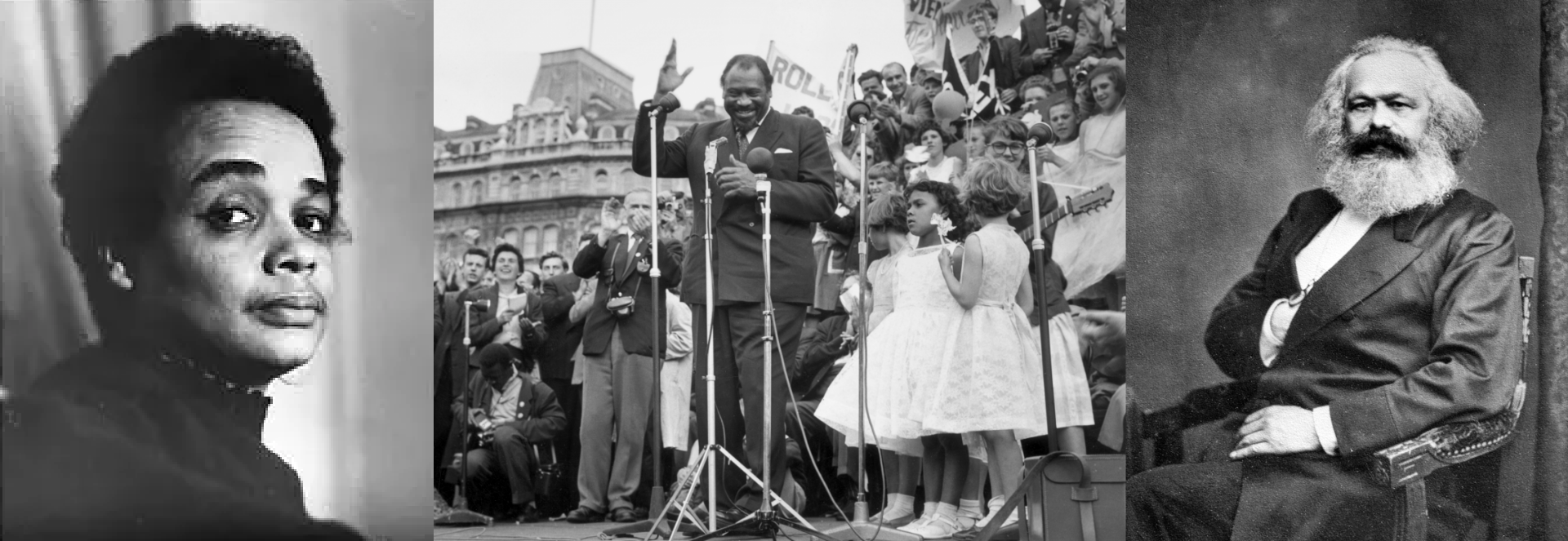A barrage of laws and an avalanche of court rulings are stripping us of one right after another. Over one million people in prison and 3,000 on death row (the numbers mounting at unprecedented speed). No jobs for ghetto youth? “Lock ’em up.” Failing schools? “Lock ’em up.” No real drug prevention or treatment effort? “Lock ’em up.”
And once they’re in prison, brutalize them, remove every shred of self-respect, stuff them in ever smaller cages, get rid of “frills” like college courses, take away their exercise equipment. (Ban those muscles but make automatic weapons legal.)
Now, in the so-called anti-terrorist legislation just passed by Congress and signed by President Clinton (all of which rips the Bill of Rights to shreds) are measures that will make it easier to execute the innocent or ensure that they rot behind bars. For they gut the right to appeal State convictions in the federal courts, the famous right of habeas corpus passed by Congress after the Civil War to ensure that the former Confederate states did not hurl the freedmen into another form of slavery. For generations now it has been an established principle that federal judges have a duty to uphold the Constitution against state abuses.
But when under the pressure of the Civil Rights movement the federal courts struck down one Jim Crow law after another, and when these courts moved to protect the rights of all -African-Americans, women, the physically challenged, political dissidents and others, the segregationists and other reactionaries, led by powerful lobbies such as the National Association of Manufacturers and the U.S. Chamber of Commerce, launched a fierce attack against the Federal courts in the name of “States Rights.”
Today, as the country is dragged steadily to the Right, the doctrine of States Rights is in the saddle. Claiming to be bringing government closer to the people, Big Business and their political underlings know that state governments are easier for them to control and in most cases less subject to pressure by organized labor and peoples of color.
What, then, are the provisions of the Act affecting habeas corpus? First, for all practical purposes, a prisoner would be limited to just one appeal. Moreover, that appeal would have to be filed within six months, and in some cases even less time. And the Judge would have to rule within six months of the appeal. Up to now there have not been limits either on the number of appeals or on the time to make an appeal. For it was recognized it might take years before new evidence came to light, before new witnesses stepped forward or previous witnesses recanted their testimony.
Moreover, a prisoner might draft his own appeal incorrectly and have the court reject it on technical grounds. (And 90 percent of appeals are drafted by the inmates themselves.) A prisoner could lose his appeal based on one constitutional ground but later win based on another Constitutional ground.
Since 1970, almost half of the death sentences reviewed by federal courts were reversed. And it took on average 10 years for Death Row inmates to obtain justice. Under this legislation, hardly any of the 54 on Death Row who were released would be alive today! And given the numbers now awaiting execution and their rapid increase, we are looking at the possibility of hundreds going to their death who should have under the law been spared. (Of course, we say capital punishment is under all circumstances barbaric.) The limit of one appeal turns the deadly serious question of justice into a carnival game where one gets a single try at the brass ring.
But this is not all. The legislation would demand that the federal judge accept the state judge’s version of the facts of the case and also the judge’s interpretation of the Constitution — unless “unreasonable.” So it would not be enough for a prisoner to show that a confession was coerced, or that his lawyer was incompetent, not enough to show he was being railroaded by the prosecutor — and therefore not enough to show the state court was wrong to allow the conviction to stand. The state judge not only must be wrong but “unreasonably” wrong. And how many judges will publicly accuse their colleagues of being unreasonable?
There are other measures, as well, designed to increase the burden upon the defendants. Not enough that it is already extraordinarily difficult for someone who is locked away, usually without resources, to meet the burdens required to overturn a conviction. Now, in the malevolent spirit of the times they want to make pursuit of justice virtually impossible.
Many people may not care about the constitutional rights of prisoners, about a defendant’s right to a fair trial, may not care about the racist bias built into our criminal justice system which the pending legislation only makes worse. They may sneer at the notion that an attack on the rights of one group will ultimately undermine the rights of all. They may not understand that the harsh agenda being implemented against the poor will not spare the middle class, that the attack on peoples of color will ultimately claim a huge number of white victims as well. But the fact is that the fire ravaging African-Americans, immigrants, people of color generally, and the poor, is but the kindling for a fire that will engulf us all!





